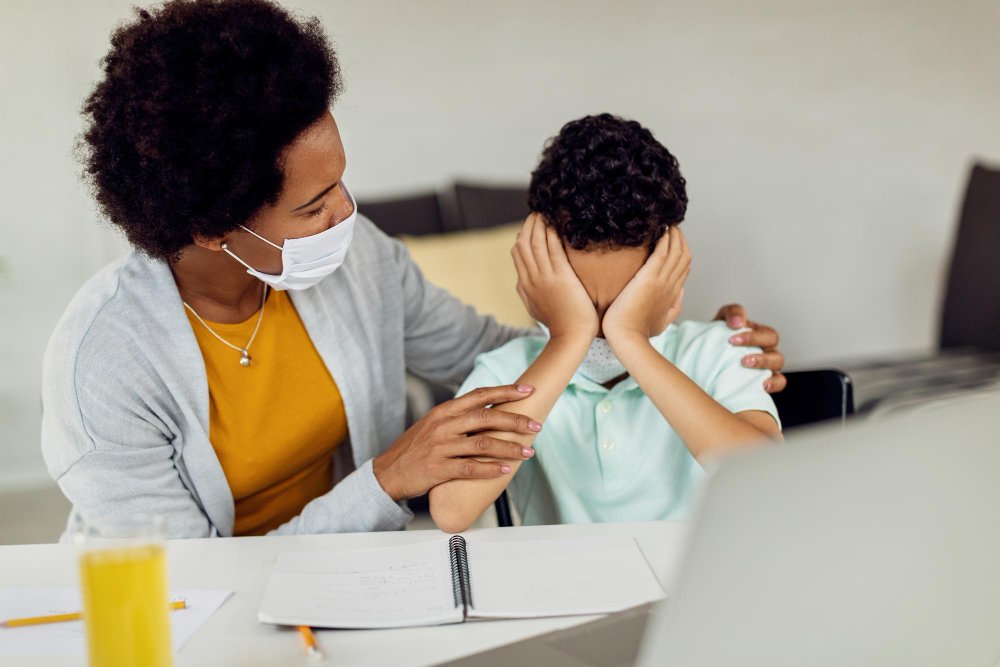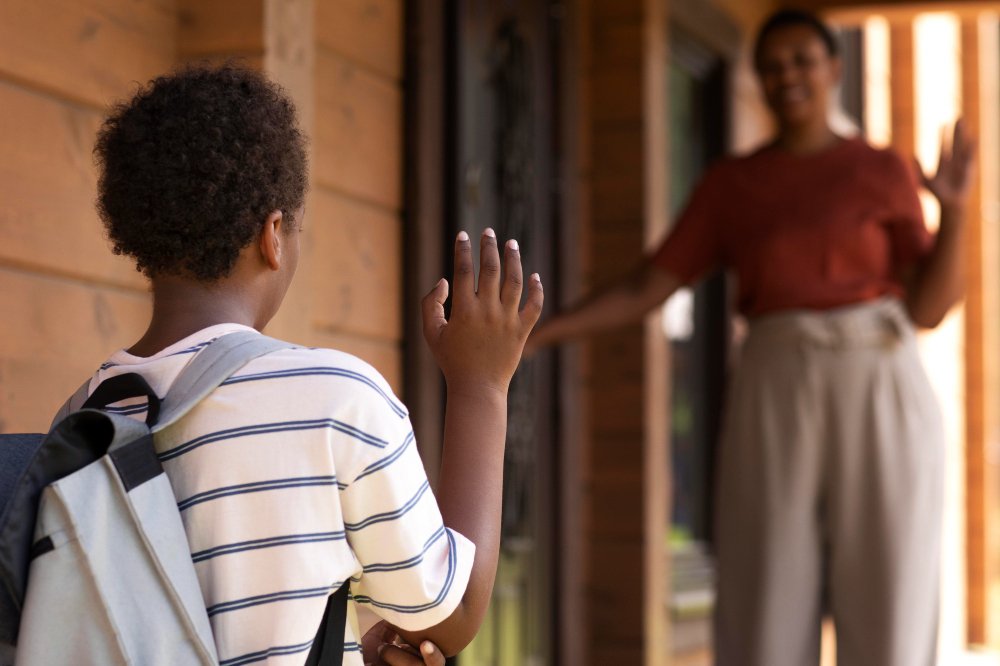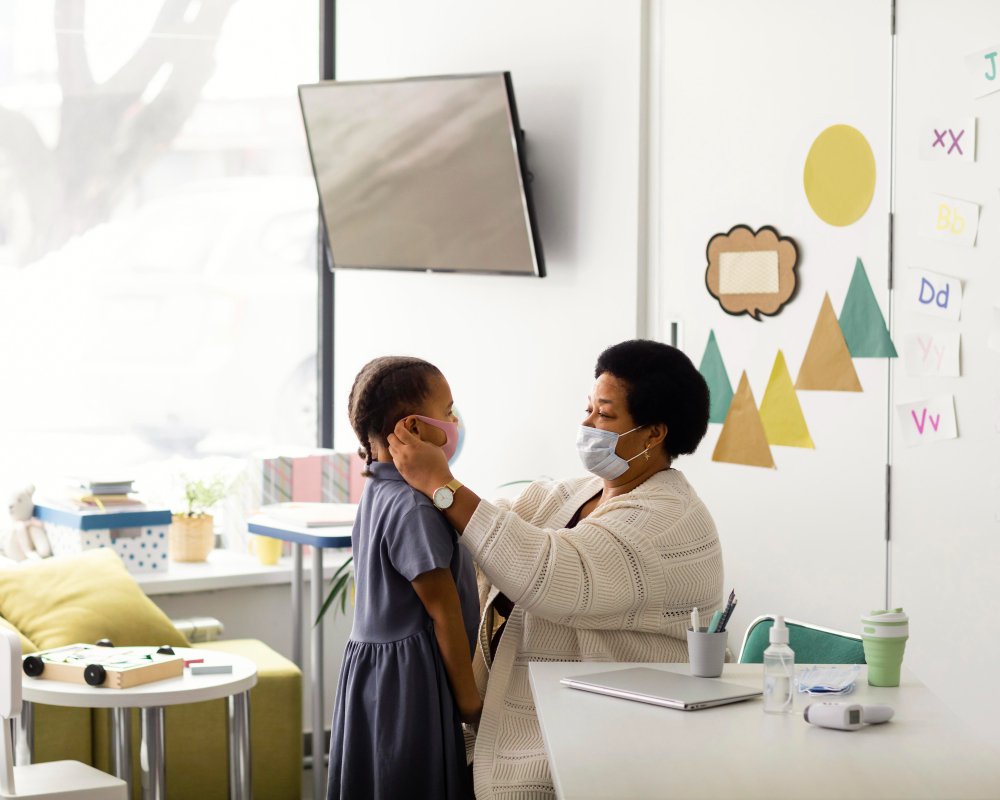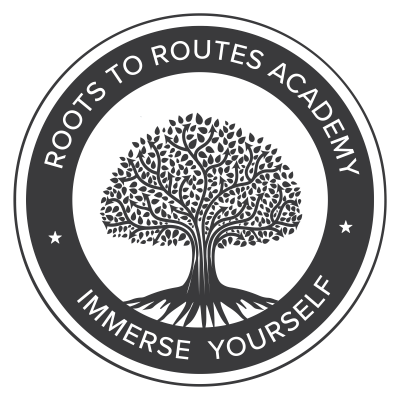Emotional Safety in Schools: Building Trust for Better Learning
November 11, 2024

Imagine this: a student walks into class, feeling tense and anxious. Maybe they’ve been laughed at before or haven’t felt like they belong. Every day, they’re in a place that feels more like a test of survival than a safe, welcoming space. When a student feels this way, learning becomes nearly impossible. They’re so focused on protecting themselves or staying unnoticed that there’s no room left to actually focus on the lesson or enjoy learning.
This lack of emotional safety is a quiet but powerful barrier to learning for many students, especially Black students who might feel isolated, misunderstood, or unsupported in traditional school environments. When students feel emotionally unsafe, they may keep to themselves, avoid speaking up, or even feel ill, which can make a school day feel like an exhausting, uphill battle.
At Roots to Routes Academy, we know that students can only thrive when they feel safe, supported, and celebrated. Our program was created by Black educators who understand the importance of building a space where Black students feel seen, understood, and valued. This article explores how emotional safety—the feeling of being truly secure and supported—lays the groundwork for genuine learning. With insights from attachment theory, we’ll show teachers, school counselors, and parents practical ways to create this safe environment, allowing students to learn and grow without fear. These strategies have been carefully chosen because we’ve seen them work, and we’re excited to share how they can make a difference in the lives of students everywhere.
The Importance of Emotional Safety in Schools
What is Emotional Safety?
Emotional safety is when a student feels secure enough to be themselves without fear of judgment, rejection, or punishment. In emotionally safe classrooms, students know they can make mistakes, ask questions, and speak up without worrying that someone will mock or criticize them. This sense of safety is more than just a nice-to-have; it’s essential. Studies show that students who feel emotionally safe perform better academically, develop healthier relationships with peers, and have fewer behavior problems in school.
The Learning Connection
When students feel safe, their brains are open to learning. On the other hand, when students feel stressed, anxious, or unsafe, their brains go into a “fight or flight” mode, making it hard to concentrate, remember information, or solve problems. According to research by the National Scientific Council on the Developing Child, stress limits learning because it takes up brain energy that students would otherwise use to think, engage, and learn. In schools that prioritize emotional safety, students are more likely to have higher grades, better test scores, and stronger attendance records.
Unique Challenges for Black Students
For Black students, the need for emotional safety is often even greater. Many Black students feel misunderstood, unsupported, or even targeted by biased assumptions. This can lead to a feeling of always being on guard, making it harder to engage in learning. According to a report from the American Psychological Association, Black students are more likely to face unfair treatment in school, such as disproportionate discipline. Roots to Routes Academy was created to counter these challenges, offering an inclusive, culturally affirming space where Black students can feel emotionally secure and empowered to succeed.
Understanding Attachment Theory and Its Role in Emotional Safety

What is Attachment Theory?
Attachment theory is the idea that all people need safe, trusting relationships to feel secure and thrive. Usually, this concept is applied to young children and their parents or caregivers. When children have strong, positive relationships, they feel confident to explore, learn, and grow. But attachment isn’t just for young children—it’s essential for students of all ages, even high schoolers.
Why It Matters in Education
In school, teachers can act as “attachment figures” or stable, supportive adults that students trust. This relationship doesn’t replace parents or caregivers but adds another layer of emotional security. When students feel that their teachers genuinely care about them, they feel safe to engage, ask questions, and push through challenges. This sense of security not only helps students learn better but also strengthens their resilience to life’s challenges.
The Benefits of Secure Relationships in School
When students have secure relationships with teachers, they’re less likely to feel stressed or anxious. Research shows that students who feel connected to their teachers are more motivated and have better school attendance. They are also less likely to engage in risky behaviors. With secure relationships, students feel that school is a place where they belong, not just a place they have to go.
Practical Steps for Teachers to Foster Emotional Safety Using Attachment Theory
1. Building Trust through Consistent and Attentive Interaction
A trusting relationship starts with simple, everyday actions. When teachers greet students by name, make eye contact, and actively listen, they show students that they care. For example, a teacher can start the day with a quick “check-in” question, like, “How are you feeling today?” This small effort can help students feel valued and understood.
2. Creating an Inclusive and Identity-affirming Environment
At Roots to Routes Academy, we emphasize celebrating Black culture, achievements, and history. Teachers can create a similar environment by incorporating diverse perspectives in lessons and using materials that reflect students’ backgrounds. This shows students that their identities are honored and welcomed, helping them feel comfortable and open to learning.
3. Maintaining Predictability and Fairness
Predictable routines help students feel in control. Teachers can create a stable environment by keeping daily routines and being clear about classroom expectations. This consistency assures students that they won’t be surprised or unfairly targeted. Fair treatment is equally important; students need to see that all rules apply equally and that they’ll be heard if they speak up.
4. Encouraging Open Communication
Teachers can foster emotional safety by creating an open-door policy for communication. When students know they can approach a teacher without fear of judgment, they’re more likely to share concerns or ask questions. This helps students learn to express themselves, a skill that benefits them in and out of the classroom.
5. Responding to Student Emotions with Empathy
Emotional responses to stress, frustration, or confusion are common among high school students. Teachers who respond with empathy—acknowledging and validating student feelings—show that they genuinely care. For example, instead of dismissing a student’s frustration, a teacher might say, “I see this assignment is challenging for you. Let’s work through it together.” This response helps students feel supported.
Practical Steps for School Counselors to Reinforce Emotional Safety

1. Supportive One-on-One Interventions
Counselors can create a safe space for students to share their experiences and emotions. By actively listening and encouraging open expression, counselors help students process challenges in a secure environment.
2. Group Activities for Relationship Building
Group sessions or activities can foster peer connections, reducing feelings of isolation. These activities can help students understand and empathize with one another, creating a strong support network within the school.
3. Creating Safe Spaces
Many schools have designated safe spaces for students to relax or seek help. These spaces can be vital, especially for students who may feel overwhelmed or anxious, providing a spot where they can feel supported and valued.
How Parents Can Support Emotional Safety at Home
1. Reinforcing Trust and Open Communication
Parents can reinforce the emotional safety that teachers create by listening without judgment and offering reassurance. Asking open-ended questions, like “What was the best part of your day?” or “What’s something that was hard today?” can help children feel comfortable sharing.
2. Promoting Self-Identity and Resilience
At home, parents can celebrate their child’s culture and identity through stories, family traditions, or conversations. This helps build pride and resilience in children, reassuring them that their identity is a source of strength.
3. Coordinating with Teachers and Counselors
Parents can support teachers by staying connected to school staff, checking in on their child’s progress, and discussing ways to maintain consistency between home and school. This unified approach creates a stronger safety net for students.
Conclusion: The Transformative Impact of Emotional Safety in Schools
When students feel emotionally safe, they become unstoppable learners. They’re willing to engage, to make mistakes, to try again, and to support each other. Emotional safety creates an environment where students don’t just survive school; they thrive. At Roots to Routes Academy, we are deeply committed to creating this safe, affirming space for Black students to grow and succeed.
Are you ready to be part of a school community that puts students’ emotional safety and well-being at the heart of everything? Join us at Roots to Routes Academy and experience an education that empowers students not just to learn but to shine.
![]()
Related Posts
We’re So Glad You Made It Here
We know you might still have a few questions or concerns and that’s completely okay. We’re here to listen, to support, and to make sure you have all the information you need.
If something’s on your mind, don’t hesitate to reach out. Just send us a quick message, we’re happy to help.
Once you do, a member of our team will get back to you shortly and you’ll also start receiving our free, value-packed newsletters filled with tips, resources, and insights to support your child’s learning journey.

